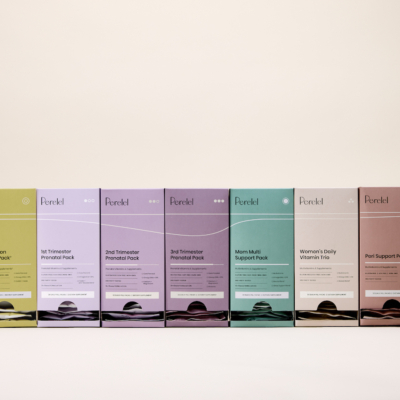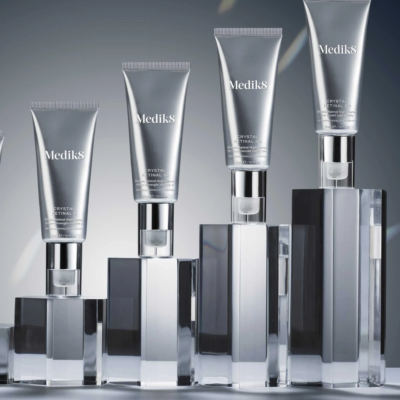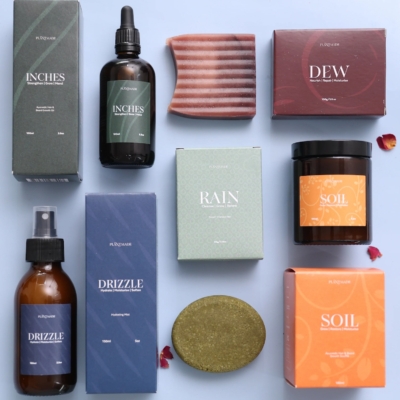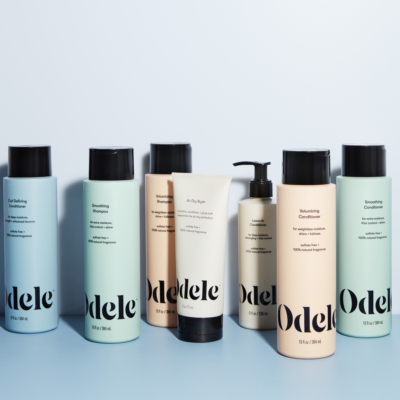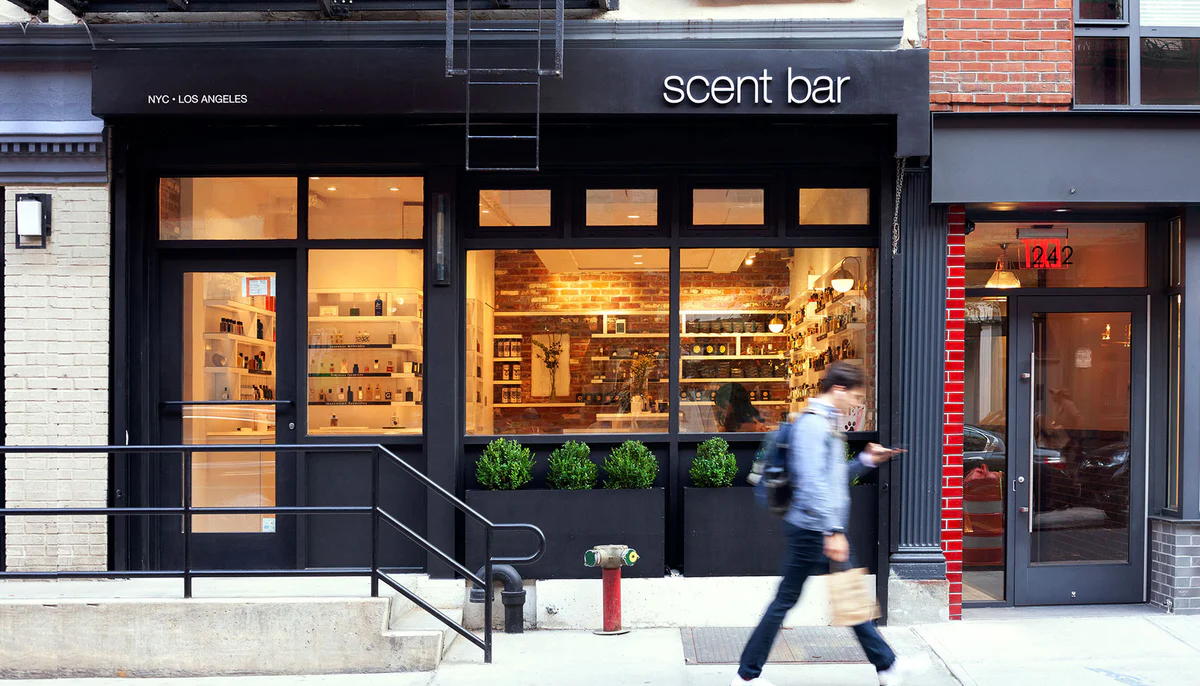
Monogram Capital Acquires Luckyscent To Scale Scent Bar Retail Footprint
Monogram Capital Partners has acquired Luckyscent, the 23-year-old e-commerce pioneer turned specialty retailer that’s earned a devoted following for its vast niche perfume assortment and role as a curatorial authority in the crowded and complex scent category.
Terms of the deal weren’t disclosed. The acquisition reinforces private equity firm Monogram’s already strong presence in fragrance and provides fuel for the expansion of Luckyscent’s three-unit retail concept Scent Bar as well as the creation of a brand. A Brooklyn location is planned for the first quarter next year to join existing stores in Los Angeles and New York City, with one to two additional openings expected annually until Scent Bar reaches roughly a dozen units.
“Luckyscent represents our further confidence in the fragrance category following our investments in Tru Fragrance, D.S. & Durga and Beach House Group’s Noyz brand launch last year,” says Oliver Nordlinger, co-founder and partner at Monogram. He has joined Luckyscent’s board.
Monogram generally invests in consumer brands generating revenues from $5 million to $250 million with equity checks of $50 million-plus. Luckyscent carries D.S. & Durga and anticipates working on projects with Monogram’s other fragrance holdings.
The specialty retailer wasn’t hunting for a deal in 2023, when it fielded an unsolicited offer from an unnamed private equity firm. That offer prompted co-founders Adam Eastwood and Franco Wright to explore options, believing the time was right for a capital infusion that could build the company’s team and national footprint. Luckyscent’s transaction with Monogram was completed in January.
Eastwood says Luckyscent was drawn to Monogram because Nordlinger “understands more than just the P&L. He had a familiarity with the business itself whereas a lot of people were specifically looking at the numbers. He saw both. For us, it was reassuring that, when we discuss strategy moving forward, he would have a better understanding of where we could go.”
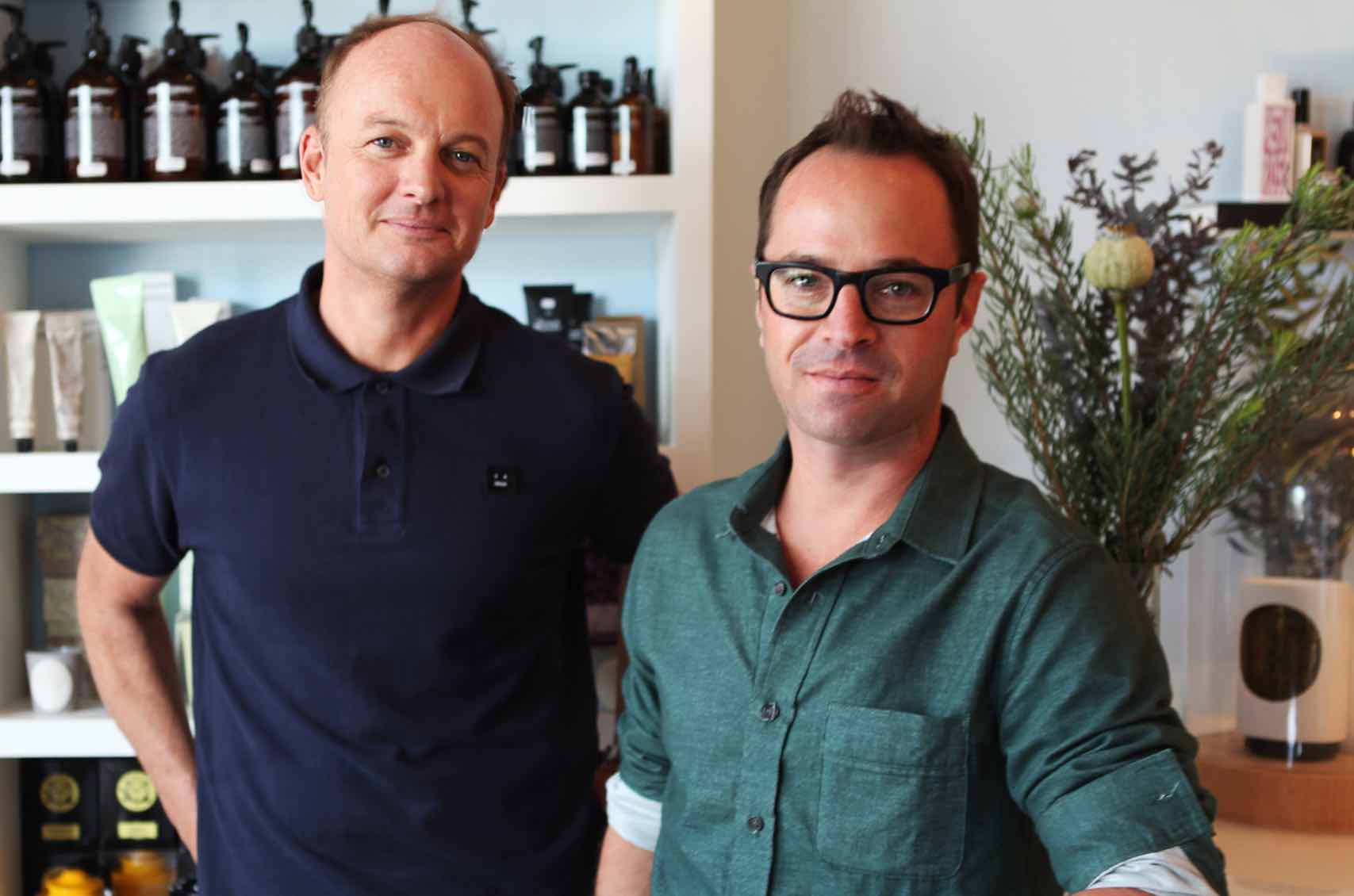
Luckyscent’s deal with Monogram comes as niche fragrance retail is proliferating in multibrand and brand-dedicated formats. The Scent Room, The Perfume Shop, Arielle Shoshana, Stéle and Ministry of Scent are among those vying for fragrance shoppers’ wallets.
Before Luckyscent, Eastwood and Wright ran a boutique design company and developed websites for beauty brands. They spotted the emergence of West Coast fragrance brands like Kai, Child Perfume and Sage and concluded they could use an e-commerce home for broader exposure. In the beauty industry, few believed fragrances could be sold online. By 2006, Luckyscent branched into brick-and-mortar retail with Scent Bar to secure partnerships with brands that required accounts to have a physical outpost.
The impact of Luckyscent and Scent Bar on niche perfumery has been profound. They’ve been a launching pad for untold numbers of indie brands and a vehicle to familiarize consumers with a fragrance world that can seem impenetrable. During a period of flagging department stores, the traditional retail showcases for fragrances, they’ve provided an alternative with customer service that allows shoppers to linger and not be pressured to purchase.
Today, Luckyscent sells about 450 brands and 3,000 fragrances. In its stores, the selection is edited to 200 to 250 brands. A few bestselling brands are Giardini di Toscana, Clue, D’Annam, Brandt, Theodoros Kalotinis and Melanie Martinez. For Scent Bar’s forthcoming stores, the company is targeting 600- to 1,000-square-foot spaces in major American metropolitan areas. Stores contribute 20% to 25% of Luckyscent’s gross sales, and the company overall has registered an average sales increase of 17% for the past five years.
“We aren’t becoming a different business. We are just refining and growing in the best possible ways.”
“Luckyscent is a unique retailer in many ways,” says Emilie Mascarell, a fragrance industry consultant and the founder of luxury home care brand Maison Mascarell. “They categorize their store largely by scent note rather than by brand, so customers feel as though the space is curated to guide them by their personal fragrance preferences rather than steering them toward any one label. Their staff is also incredibly knowledgeable and serve as true guides, giving the store tremendous credibility.”
“Physical spaces like Scent Bar are essential to the customer journey,” says Darcy Moore, founder of Belnu, a fragrance brand sold by Luckyscent. “I believe people visit Scent Bar to find something elevated and unique, something that expresses who they are beyond what’s available at larger, mass beauty retailers. Scent Bar—and all niche-focused fragrance retailers—plays a crucial role in helping small fragrance brands be discovered by the fragrance community.”
Wright and Eastwood understand that Scent Bar and Luckyscent customers might be worried about the involvement of private equity, an industry known for degrading companies in pursuit of profit. Wright emphasizes, “We aren’t becoming a different business. We are just refining and growing in the best possible ways.”
Eastwood says, “The stores are successful because of the way they focus on people’s experience. I don’t have any concerns about that. It’s not like you can reduce the margins on that product. It’s a very high-touch experience and, in order for it to work, it has to remain that way.”
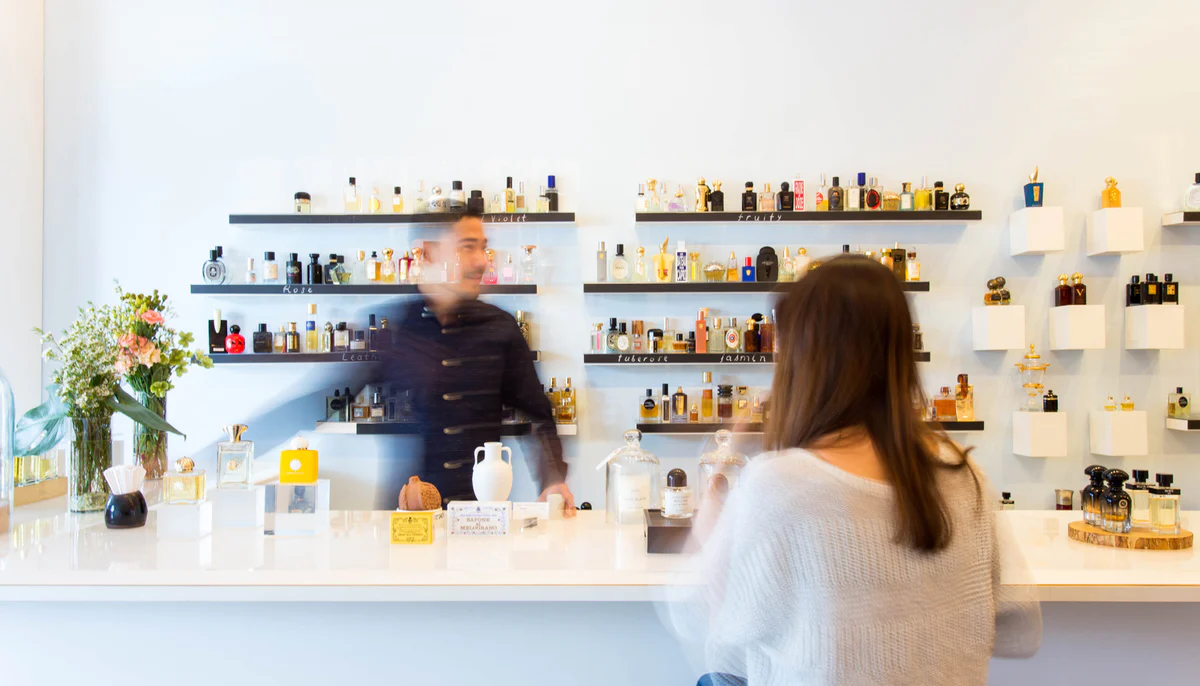
Since the pandemic, Scent Bar has broken out from the confines of its four walls on social media and in a podcast, “It’s Just Perfume,” featuring store employees, notably Steven Gontarski, manager of the LA locations. The explosion of #perfumetok on TikTok has been a catalyst for Scent Bar and Luckyscent to attract younger fragrance enthusiasts to complement the older aficionados that had been its shopper stalwarts. Luckyscent has 120,000 Instagram followers, 14,000 YouTube subscribers and nearly 79,000 TikTok followers.
The market research firm MarketGrowthReports estimates that niche fragrances represented over 16% of global fragrance sales in 2023, and the segment is being propelled by gen Z’s fragrance obsession. Data from market research firm Circana, cited by Reuters, shows that households with a gen Z member accounted for about 38% of total fragrance spending in the 26 weeks ending July 2025. While still outpacing the rest of beauty, prestige fragrance’s growth in the United States cooled to 5% in the first half of this year from 12% in 2024.
Currently, Luckyscent has around 30 employees at its headquarters in Burbank, Calif., and eight store employees in LA and seven in New York. With Monogram’s investment, it’s shored up talent in marketing, human resources, information technology and finance.
In the next 12 to 16 months, Eastwood and Wright anticipate Luckyscent getting serious about creating a brand and a subscription service disseminating perfume samples. Samples are an important component of the company’s proposition, and it doles out thousands per year.
“We have always been believers in trying something before you commit to a full bottle,” says Eastwood. “It’s important to get that service to customers and basically bring the in-store experience to them to make sure the fragrance is the right fit. It keeps customers feeling confident in their purchases.”

